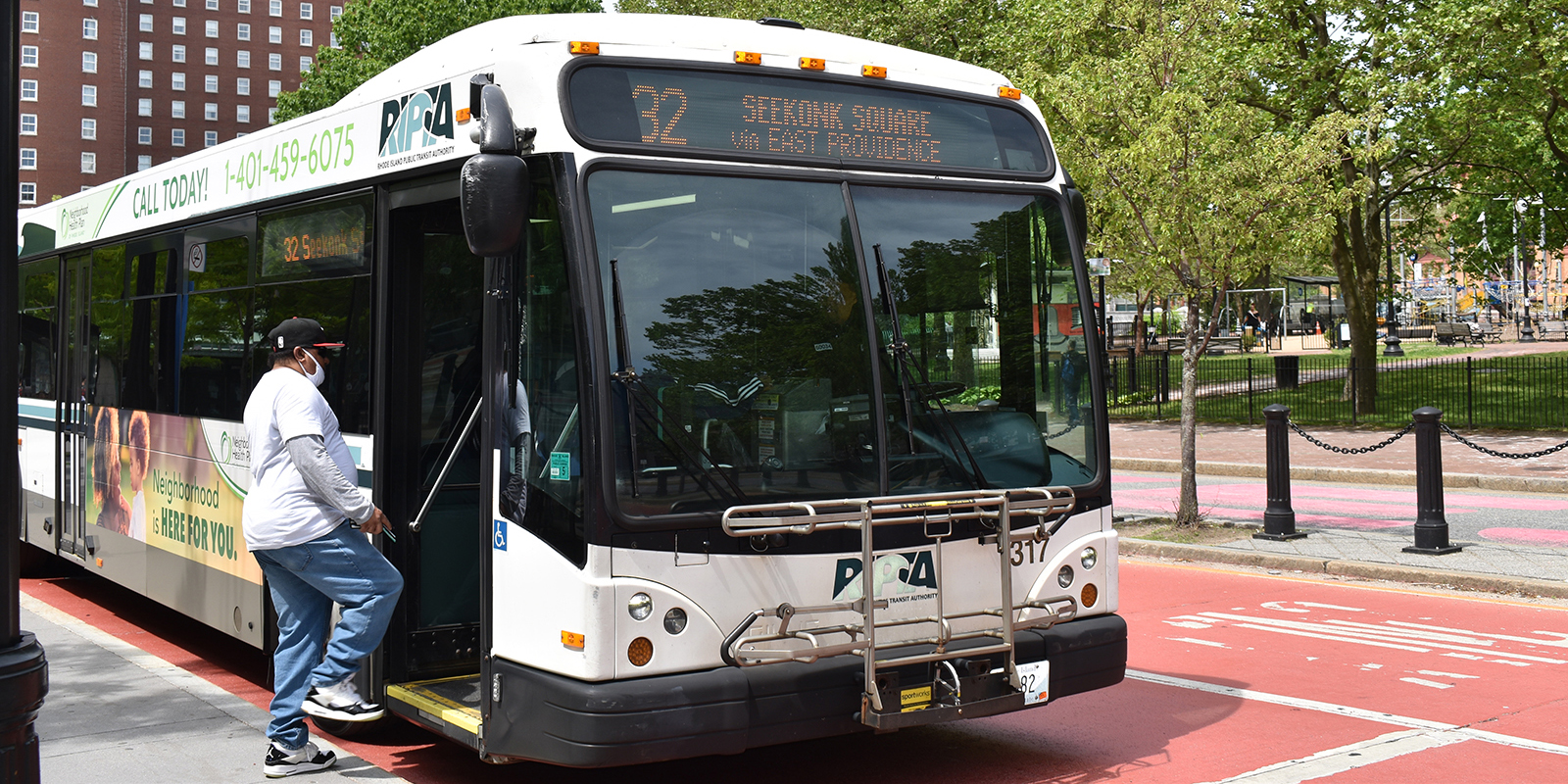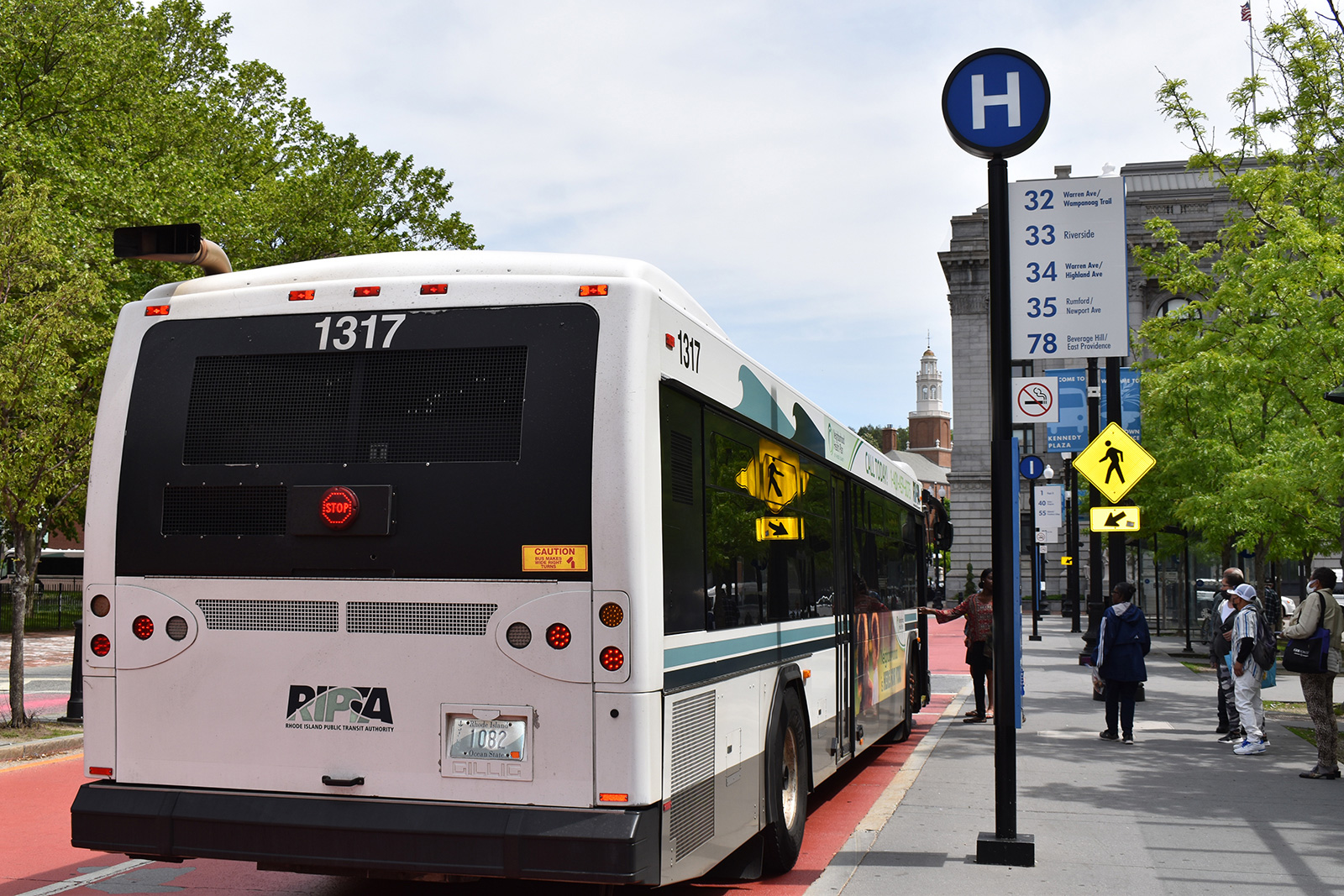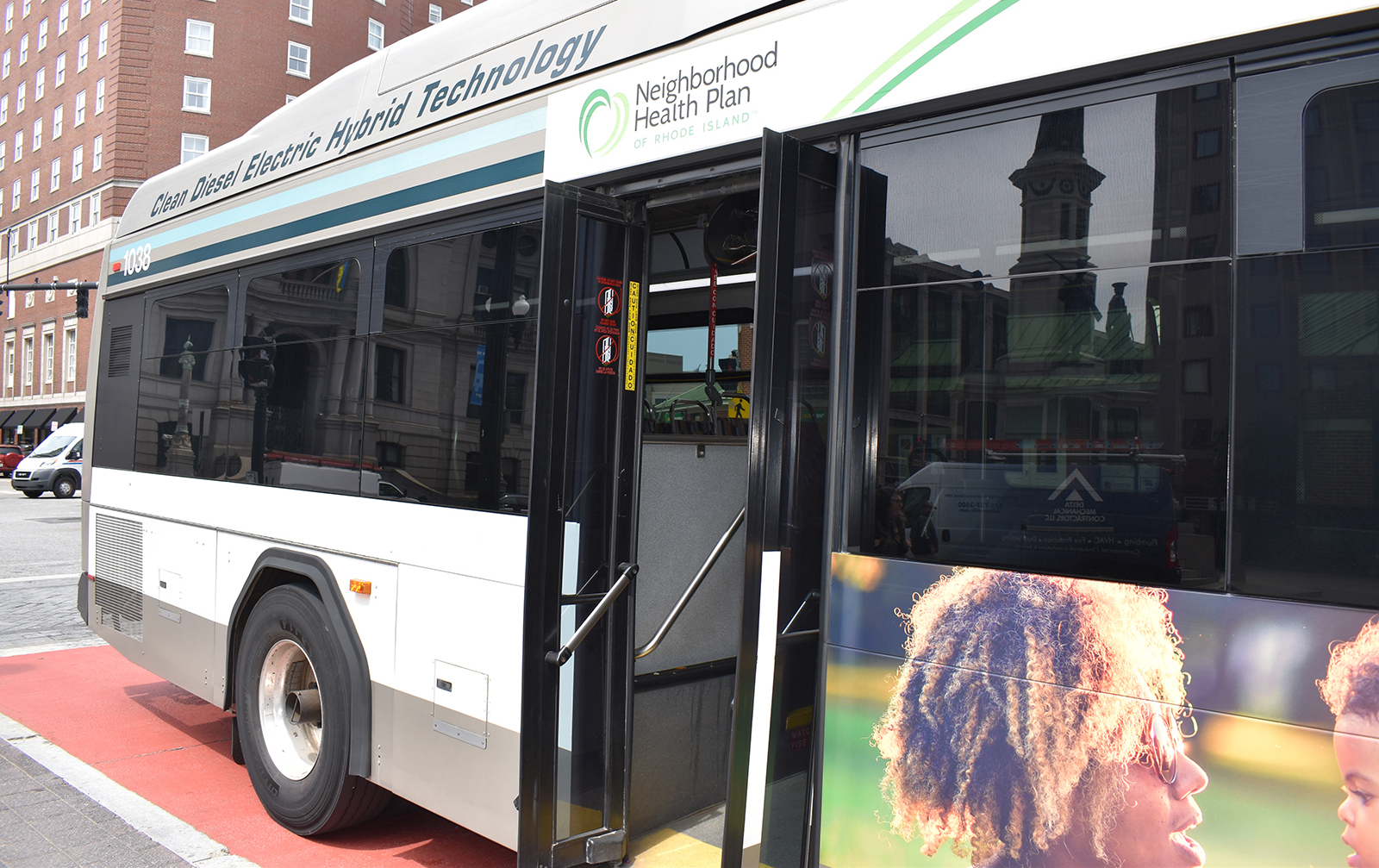RIPTA Extends Pilot Program Giving Free Bus Fare to Low-Income, Unhoused Riders
October 2, 2023
PROVIDENCE — The Rhode Island Public Transit Authority’s board of directors approved a one-month extension for the free bus fare pilot program at its September meeting.
The program that had been set to lapse on Sept. 30 provides free bus service to riders that don’t qualify under existing programs. It will now run through October.
To get a free fare card outside of the pilot program, riders must be at least 65 years old or have a disability and cannot make more than 200% above the poverty line. There is also a temporary free fare program for veterans, run through the state Office of Veterans Services.
For the last six months, the RIPTA pilot program gave 775 individuals who are low-income or unhoused or both access to a free fare card. Partner agencies, including Mathewson Street United Method Church, prequalified the recipients, which saved the free fare card-holders from having to file paperwork with RIPTA, a common complaint and obstacle for people who are unhoused.
RIPTA staff asked the board for an extension, or “grace period,” for the program so that it could advertise to program partners and card users that the pilot was ending and offer ideas for how to continue the program in the future.
Several members of the public spoke in favor of extending the program beyond the month that staff asked for. Many were beneficiaries who talked about how the free fare has helped them.
One woman who spoke said that becoming homeless blindsided her. “I could not fathom… how to get services,” she said. “That bus pass allowed me to get my life together.”
Others echoed her sentiments. One person said that after months in a diabetic shock, the free pass allowed him to get to and from medical appointments and physical therapy far from his home. Another woman talked about how the pass helped her get off the streets and enter sobriety.
During discussion of the extension, some board members raised concerns about whether it would put them in violation of federal regulations and why staff had not brought program recommendations to an earlier meeting.
RIPTA technically is only permitted to implement the reduced fare program for six months, under Federal Transit Administration (FTA) rules. Sarah Ingle, RIPTA’s long range planning manager, said that it would likely not put the agency out of compliance with the rules to extend the program by a month, and that even if it did, the FTA probably would not impose a punishment, although she couldn’t guarantee the outcome of a future FTA review.
Peter Alviti, director of the state Department of Transportation and RIPTA board chair, asked staff to try to reach out to the FTA for guidance on the issue.
Alviti also voiced frustration that RIPTA staff did not bring a more detailed analysis of the program to the board.
Staff said that the agency is missing out on about $40,000 in revenue a month by running the program, but offered to bring more precise figures to the October meeting. They also said that they could have a better breakdown of who used the cards to help them improve a future program.
“What did you get out of the data that you collected?” board member Michelle Wilcox asked. “I was expecting a recommendation other than we have to stop.”
Despite concerns about the details, all board members spoke about the benefits it had brought recipients.
Another board member, Patrick Crowley, thanked the staff for all their work on the project and suggested that the program get extended beyond the month staff asked for.
Ultimately, the board voted to extend the free fare pilot program to the end of October and to revisit how it could be continued in a new format at the board’s next regularly scheduled meeting on Oct. 25.



